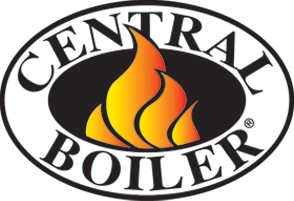As a homeowner, one of the key decisions you’re likely to face is selecting the ideal furnace for your home. Your choice can significantly impact your home’s comfort level, especially during the colder months, and your energy bills. It goes beyond merely picking out a heating system; it’s about choosing an efficient and reliable furnace that aligns with your home’s specific needs.
That’s why Elite Mechanical LLC is here to illuminate the pivotal factors that should be taken into account when deciding on a new furnace for your home. We’ll highlight aspects such as the type of furnace, energy efficiency, size, cost, and the quality of indoor air. Armed with this knowledge, you’ll be better equipped to make an informed decision, ensuring your home is warm and cozy for years to come.
Efficiency Ratings: Long-term Energy Savings and Environmental Impact
One of the most critical factors to consider when choosing a new furnace is its energy efficiency rating. Furnace efficiency is measured by the Annual Fuel Utilization Efficiency (AFUE) rating, which represents the percentage of fuel converted into usable heat. A higher AFUE rating indicates a more efficient furnace, meaning lower energy consumption and reduced utility bills in the long run.
When evaluating furnace efficiency, two main categories of furnaces are available: standard-efficiency and high-efficiency furnaces. Standard-efficiency furnaces typically have an AFUE rating of around 80%, while high-efficiency furnaces can have ratings above 90%.
While high-efficiency furnaces may be more expensive upfront, the long-term energy savings and lower environmental impact make them a worthy investment, particularly in colder climates or in regions with high fuel costs.
Furnace Size: Balancing Comfort and Energy Efficiency
Another crucial factor to consider when selecting a new furnace is its size, or heating capacity. The furnace size should be tailored to your home’s specific needs, ensuring the right balance between comfort, efficiency, and cost. An appropriately sized furnace will effectively heat your home without wasting energy or resulting in short-cycling, which can lead to increased wear and tear on the unit.
A heating load calculation should be performed to determine the furnace size that is suitable for your home. This calculation considers factors such as the size of your home, insulation levels, window area, and the local climate.
Engaging a professional HVAC contractor to conduct a heating load calculation will help ensure that the furnace you select is the right size to provide optimal comfort and energy efficiency.
Fuel Type: Assessing Availability and Cost
The type of fuel that powers your furnace is another essential factor to consider when making your decision. The most common furnace fuel types include natural gas, propane, oil, and electricity. Each fuel type has its advantages and disadvantages, which should be carefully weighed to determine the most appropriate option for your home.
- Natural Gas: Natural gas is the most common furnace fuel type due to its widespread availability, affordability, and relatively low emissions compared to other fossil fuels. Natural gas furnaces also have faster heating times, making them more efficient at maintaining comfortable indoor temperatures.
- Propane: Propane furnaces can be an excellent alternative in areas where natural gas is not readily available. Propane is typically more expensive than natural gas, but propane furnaces often have higher AFUE ratings, making them more efficient.
- Oil: Oil furnaces are known for producing more heat per BTU (British Thermal Unit) than other fuel types, making them suitable for colder climates. However, oil prices tend to be more volatile, and oil furnaces usually require more frequent maintenance.
- Electricity: Electric furnaces are known for their low initial cost and straightforward installation. They also produce no harmful emissions. However, electric furnaces can be less energy-efficient than gas and oil furnaces, leading to higher electricity costs in regions with high electricity rates.
When selecting a fuel type, consider the availability of the fuel source in your area, the associated costs, and the environmental impact.
Furnace Features: Enhancing Functionality and Convenience
Modern furnaces offer a variety of features that can enhance functionality and convenience, and even improve energy efficiency. Some key features to consider when choosing a new furnace include:
- Variable Speed Blowers: These blowers adjust their speed according to the heating demands of your home, resulting in more consistent temperatures, increased energy efficiency, and reduced noise.
- Zoning Systems: Zoned heating systems divide your home into separate areas, each with its temperature control, providing precise temperature control, improved comfort, and potential energy savings.
- Smart Thermostats: Integrating a smart thermostat with your furnace can optimize the system’s performance, increase energy efficiency, and provide added convenience through remote control and scheduling options.
Evaluating these features when selecting a new furnace will allow you to achieve a more personalized and efficient heating system tailored to your specific needs and preferences.
Additional Considerations: Installation, Maintenance, and Warranty
Other factors to consider when deciding on a new furnace include the overall installation process, maintenance requirements, and warranty coverage. Evaluating these factors will help ensure that your furnace investment is protected and operates efficiently for years to come. Choosing a reputable HVAC contractor with experience in furnace installation, maintenance, and repairs is crucial for your heating system’s long-term performance and reliability.
Securing Professional Guidance for Optimal Furnace Selection
The decision to invest in a new furnace for your home should not be taken lightly, as it involves several critical factors that could significantly impact your comfort, safety, and budget. While this guide provides valuable insights into the important factors to consider when choosing a new furnace, consulting with our experienced HVAC professionals from Elite Mechanical LLC will help ensure you make the best decision for your home.
We’re here to provide personalized recommendations based on your specific requirements and guide you through the entire furnace installation process for your home in Troy. Contact us today, and let our experts help you choose the most suitable furnace that ensures reliable performance, enhanced comfort, and energy efficiency for your home!









